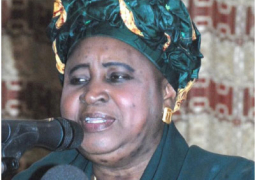It is an important Muslim festival during which a ram is sacrificed. Because of this, the faithful prepare for the sacrificial rams with all seriousness.
Some save, some borrow in order to get at least a ram; those who are well-off, buy more than a ram for the sacrifice, which they share with their neighbours and friends.
The Greater Banjul Area is already seeing the influx of shepherds, taking their flocks around town in search of prospective buyers.
However, what is worrying here is that the affordability of 00rams at cheaper prices has now become a major concern in all corners of our society, especially in current times when the demand is too high.
This has also become a topical issue in all corners of the country.
Concerns have been raised by the public regarding the high cost of rams this year, not only within the Greater Banjul Area, but also in some parts of the country.
Ahead of this important festival, we would like to give some piece of advice, especially to the ram sellers.
While we recognise the imperative of the laws of supply and demand, sellers should not take advantage of the festival to bleed the faithful by charging exorbitant prices.
In a sense, sellers should even be more sympathetic to the faithful who have several commitments to meet in the course of the festival.
They have to buy clothes; they have to remit money to less fortunate relatives and friends; they have to buy food items to prepare sumptuous meals with which to entertain friends, relatives or neighbours.
All this eats deep into the pocket!
So if they have to pay an outrageous price for a ram, they may find it difficult to take care of other equally important needs.
As we stated on these pages not long ago, we believe that Government should look into the issue of taxation, especially of the ram dealers. The excuse almost all ram dealers give for the high cost of their rams this year is that the tax they are paying is too high.
We reiterate that every effort should be employed in putting a stop to this unfavourable and unfortunate situation, and with all possible haste.
For instance, the newly-established Livestock Marketing Agency, GLMA, should have got its act together by now; indeed, the GLMA should have been not only procuring and providing rams for Tobaski, but also puting in place and enforcing the mooted system for pricing and selling Tobaski rams (in fact, all livestock) by weight.
Such a control mechanism would not only facilitate a sense of fairness in the business, but also enable the relevant authorities to tax Tobaski ram dealers in a way which would be seen as fair by all stakeholders.
“Too many people today know the price of everything and the value of nothing.”
Ann Landers





